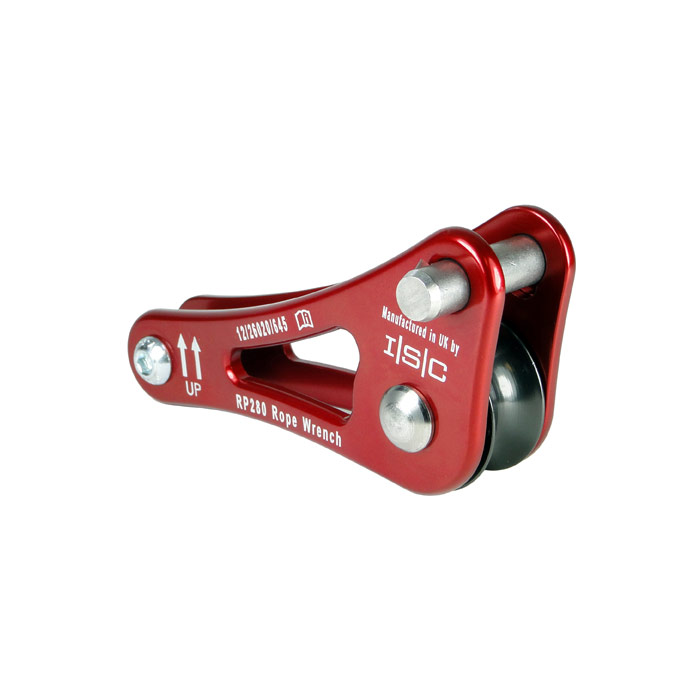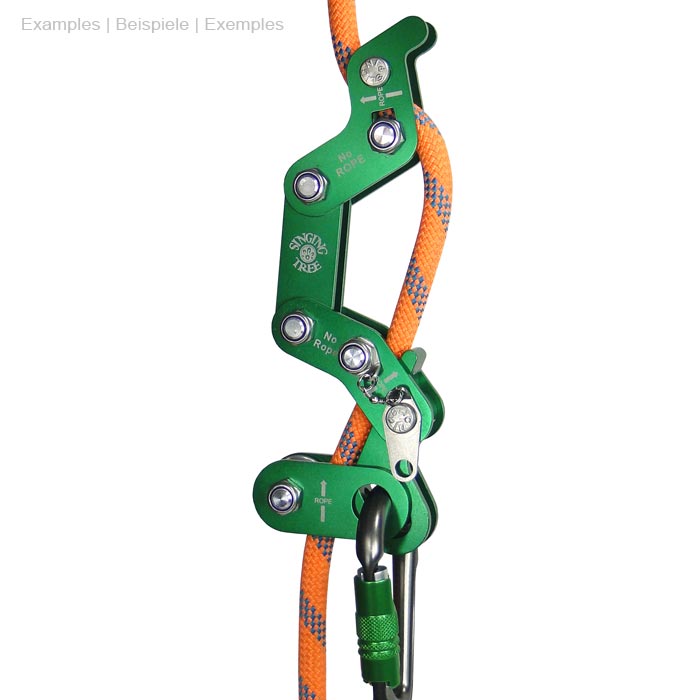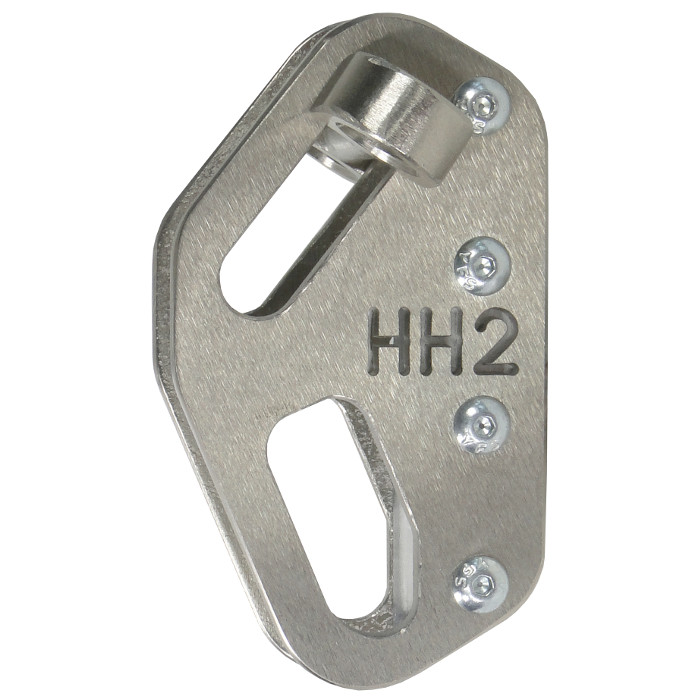Last week ended with a bang: the sale and use of the SRT devices Rope Wrench, Rope Runner, Unicender and Hitch Hiker was banned. It is clear that this leads to some discussions, but also to some questions. Our CEO Johannes Bilharz summarised the background and commented on these questions.
Dear customers, Dear tree climbers,
The Trade Inspection Office has advised FreeWorker that the sale and use, of certain non-approved SRT products, is illegal under European and German law and the sale of such products must cease immediately. The Professional Arborist Association possibly urged Trade Inspection Office to take this action.
Concerned devices explicitly named by the trade inspection office:
| Product | Manufacturer | Picture |
|---|---|---|
| Rope Wrench | I.S.C. |  |
| Rope Runner 1 | Singing Tree |  |
| Rope Runner 2 | Rock Exotica | |
| Unicender | Rock Exotica | |
| Hitch Hiker | Rope Tec |  |
When it comes to the question of the use, it is irrelevant whether the devices are accepted elsewhere in the world. It does not matter whether there were accidents or not, or how efficient the equipment is perceived to be. The decision to prohibit sales of these SRT equipments in Germany is all about the lack of Certification for these devices.
The letter from the Trade Inspection Office suggests “possible cost-effective measures” if Freeworker infringes the notice. I interpret this to mean: stop selling the product, or it will become very expensive if a legal complaint or legal case proceeds.
At the end of the day, we are in business and cannot afford this kind of financial exposure.
Background
The Trade Inspector used the following analogy to explain the situation: If you imported a car from the USA (into Germany), the vehicle must meet European safety standards. Without European safety standards, the car cannot be sold or driven on the road in Germany, regardless of the fact the vehicle is considered safe in the US. And, every country or union decides for itself what is deemed to be safe.
Safety standards are not about who is right. Rather, it is a matter of the kind of security chosen by the community to protect its citizens against arbitrariness.
For example, some countries accept cheap plagiarised product, often manufactured in China, without the need for a safety standard. Often, businesses operating in this environment are concerned about profit and not necessarily about the safety of their customers.
This situation is entirely unacceptable to Freeworker.
The merchant is liable
All new PPE products must be ‘approved for use’ before sale. The retailer is responsible for ensuring products on display reach relevant safety standards. At times, this can be frustrating for customers, particularly in situations where a product is considered ‘safe’ but is without a recognised certification. The dealer will not stock the product regardless of demand.
But it goes however even further than this.
The employer is liable
Liability also rests with the employer. By German law, the employer must provide PPE where it is required. The company can only give authorised PPE to an employee. The provision of unauthorised PSA means the company liable to prosecution. And this is no joke, as the Trade Inspectorate told me. The Berufsgenossenschaft has also clearly stated: in the event of an accident involving a non-approved PPE, the Berufsgenossenschaft will reject all insurance claims!
Ouch! The sale and provision of unauthorised PPE product could be an expensive exercise and potentially endanger the viability of the company. In the case of gross negligence, all insurance cover is void. Supplying unauthorised PSA product to employees would be considered gross negligence. Otherwise, the Berufsgenossenschaft would not be so clear.
And it gets even worse: if the courts can prove gross negligence, the entrepreneur is personally liable – you cannot hide behind a limited liability company.
Progress
Nobody can ultimately say what the courts will decide in the individual case or how high the penalties might be. Retailers or employers, who disregard the Trade Inspection Office SRT-climbing directive, do so at their risk and gamble accordingly.
Use of non-approved PPE devices
A recent post on the Freeworker Facebook page suggests climbing SRT with the RopeWrench is the safest option available to tree climbers. Personally, I think these claims are a bit overdone. No equipment should be considered secure, regardless the situation or configuration.
The Trade Inspection Office directive says you cannot use climbing product manufactured without a recognised standard. You may have evaluated the risk, provided operational instructions and done everything possible to make sure users are safe, but without the Standard, you risk prosecution.
It’s hard to predict how things would go in court. Among other things, they would ask: How did you come to the conclusion this configuration was safe? Are there any legal alternatives? For example, instead of using a non-certified system you could have used a certified system or a different climbing technique to achieve the same result. SRT fans will say there is no alternative but ergonomics, speed, and the other benefits might not be enough to convince the court?
Why is the Arb Association pushing the hard line?
The Arb Association is not trying to prohibit the use of the RopeWrench or SRT Work Positioning in general. The Arb Association is only complying with the law that clearly states that manufacturers must certify their devices according to the PPE standard. If I understand correctly, the Arb Association is happy to work with the manufacturers to help ensure the correct certification. At a meeting of climbers, retailers, the employers’ liability insurance association and SRT devices manufacturer representatives discussed the topic at the German Baumpflegetage in Augsburg during 2016. Since Augsburg meeting, little appears to have happened, and according to the Arb Association requests for more information regarding certification remain unanswered.
The end for SRT, along with the Rope Wrench and other SRT devices?
SRT (Single Rope Technique) has been around for a long time and will continue to exist. But, SRT device manufacturers have a legal requirement to ensure their equipment meets the standards set by the European Directive.
Unfortunately, there is no ‘specific’ Standard for the manufacture of SRT devices. And herein lies the problem. For traditional climbing equipment, where no standard exists, it is possible for manufacturers to test ‘in line’ with a similar Standard. Of course, this process is far more complex, because when in the field, the device may, or may not be used, exactly as tested and described in the manual.
The lack of standardisation makes SRT device certification difficult under current circumstances, presenting a not insurmountable challenge to pioneers and innovations.
Conclusion
We hope that ISC, the manufacturer of the RopeWrench (and other SRT devices), will proceed with certification. The ‘stop in sales’ seems to have had a positive effect. ISC has indicated work is now well underway to achieve certification for the Rope Wrench. More information should be available soon.
Lastly, relevant professional associations should take this as an opportunity to take action for their members and to work on their ‘profile’.

